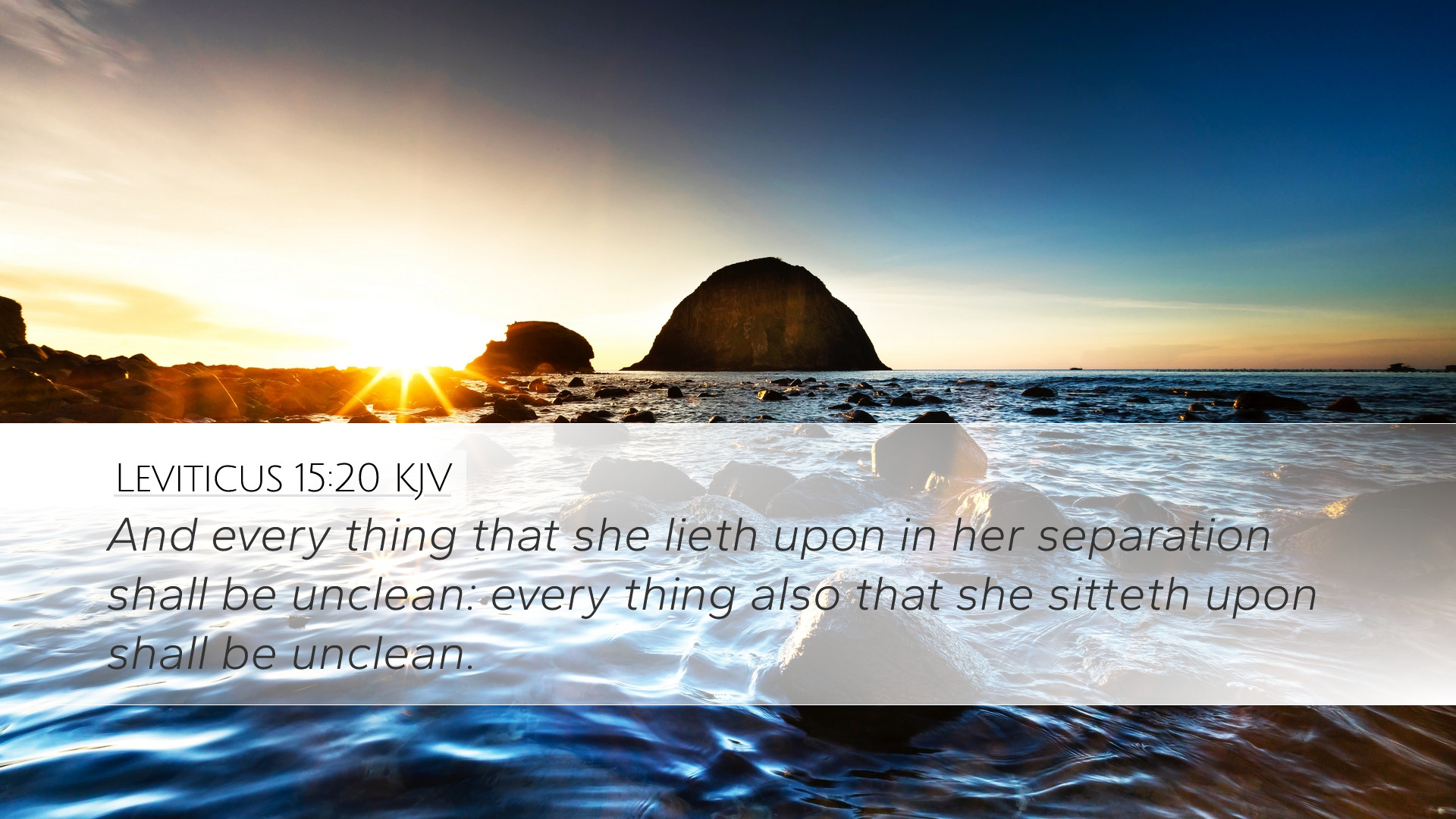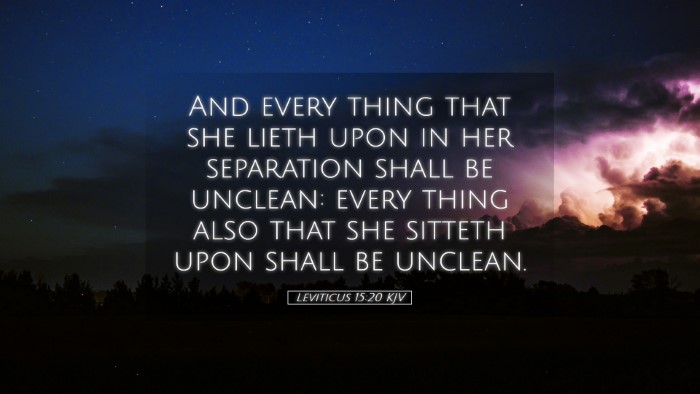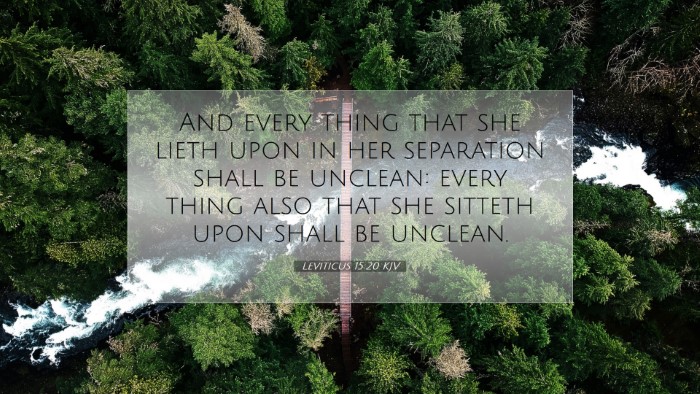Commentary on Leviticus 15:20
Verse Overview: Leviticus 15:20 discusses the laws concerning the condition of a woman during her menstrual period and the implications of her ceremonial uncleanness. This verse is part of a larger section in Leviticus that addresses purity and holiness, emphasizing the need for Israel to distinguish between clean and unclean.
Text of the Verse
“And everything that she lies upon in her separation shall be unclean: and everything that she sits upon shall be unclean.” (Leviticus 15:20)
Implications of Ceremonial Uncleanness
The concept of uncleanness in Leviticus carries significant theological and practical implications. According to Matthew Henry, this law serves to remind the Israelites of the Lord's holiness and the need for strict adherence to his commandments regarding purity. Every detail in the ceremonial law aimed to cultivate an awareness of holiness among the people.
The Divine View of Distinctions
Albert Barnes emphasizes that the distinctions made in the law reflect God's desire for His people to recognize the difference between the sacred and the common. The explicit mention of what becomes unclean during a woman's menstruation indicates that God cares about all aspects of life, including the natural and private realms.
Understanding Ceremonial Law
Adam Clarke adds depth by explaining that these laws are not merely punitive but meant for spiritual education and purity. The designation of items and places as unclean during this time exemplifies the holistic view of life that the Israelites were expected to maintain. The law is not an indictment of women but a structure within which to teach the community about the purity and the necessity for atonement and cleansing.
The Cultural Context
The context of Leviticus and the surrounding cultural practices is noteworthy. In ancient Israel, as in many cultures, menstruation was a time marked by significant social implications. Women were often isolated during their periods, as reflected in Leviticus's regulations. Henry argues that this was not meant as a form of oppression, but rather as a framework to ensure the sanctity of community worship and interpersonal relations.
Holiness in Community
Creating a holy community involved rigorous adherence to laws not only personally but also socially. The implications for a woman during her separation meant that her state affected not only herself but her family and the broader community. Barnes points out that understanding this interplay can foster a deeper empathy and respect for the laws designed by God, which ultimately seek to protect the sanctity of communal worship.
Spiritual Lessons
From this verse and its broader implications, numerous spiritual lessons emerge. The life of the believer today can draw parallels between physical states of uncleanness and spiritual realities. Clarke asserts that while ceremonial laws may not be binding today, they create a paradigm through which believers can comprehend their need for continual purification and atonement through Christ.
The Need for Continual Cleansing
In considering the implications of Leviticus 15:20, one can see a reflection of the New Testament emphasis on the need for cleaning and sanctification through Christ's atoning work. In light of this, Henry emphasizes the importance of approaching God with a purified heart, understanding the weight of sin and the grace offered through repentance.
Community and Isolation
The social ramifications of uncleanness also provide insight into how God values community dynamics. Barnes remarks that while the laws enforced separation during certain times, it was an opportunity for communal support when reintegrating back into worship and family life. This juxtaposition between isolation and community support creates a dynamic that underscores the importance of finding balance in how we care for those undergoing personal challenges.
Conclusion
Leviticus 15:20 offers profound insights into God’s holiness, the understanding of cleanliness and uncleanness, and the rich spiritual truths that can be drawn from these ceremonial laws. For pastors, theologians, and students of the Bible, reflecting on this verse encourages a deeper understanding of the interplay between Old Testament law and New Testament grace, enhancing their approach to biblical interpretation and application in contemporary contexts.
- Levitical laws establish clear boundaries that reflect God's character and holiness.
- Community practices serve to enhance relational dynamics within God’s people.
- Spiritual cleansing through Christ reflects the ultimate solution to our unclean states.


